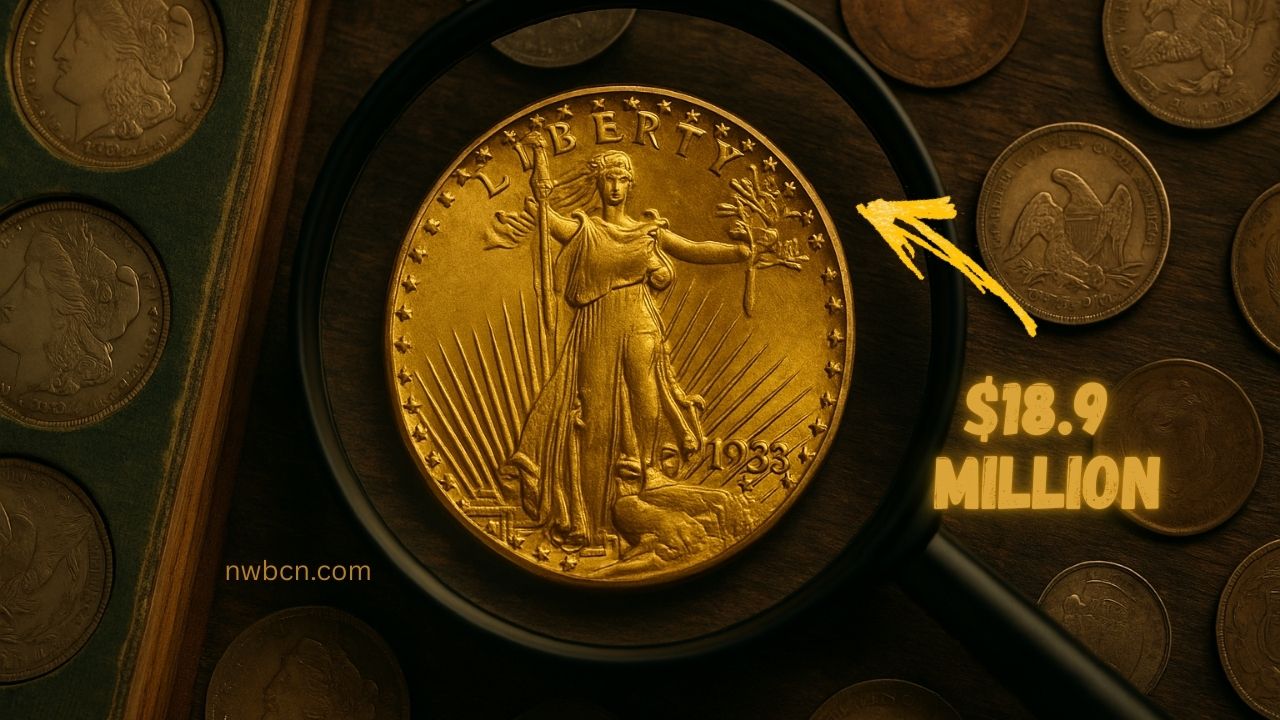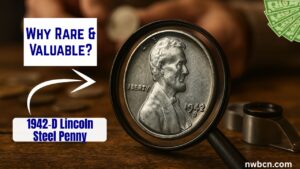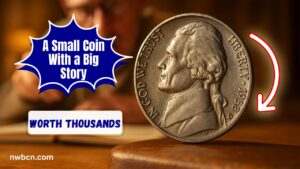The 1933 Double Eagle gold coin is not only a relic of American numismatic craftsmanship but also a symbol of financial history, rarity, and legal intrigue.
In 2021, this coin fetched an astonishing $18.9 million at auction, making it the most expensive coin ever sold. Its rarity, legal backstory, and historic significance have elevated it beyond currency to the realm of legendary artifacts.
This article explores everything you need to know about this one-of-a-kind coin — from its origins and design to its mysterious journey and record-breaking sale.
What Is the Double Eagle?
A Double Eagle is a U.S. gold coin with a face value of $20. The coin was minted primarily for large transactions and international trade during the 19th and early 20th centuries.
The most iconic version is the one designed by Augustus Saint-Gaudens, minted from 1907 to 1933.
Key Features of the Double Eagle
- Denomination: $20
- Composition: 90% gold, 10% copper
- Weight: 33.43 grams
- Diameter: 34.1 mm
- Obverse: Lady Liberty striding forward with a torch and olive branch
- Reverse: A majestic bald eagle soaring above the sun
- Designer: Augustus Saint-Gaudens
Why the 1933 Double Eagle Is So Special
In 1933, 445,500 Double Eagles were struck at the U.S. Mint. However, none were officially released into circulation.
That same year, President Franklin D. Roosevelt signed an executive order banning the hoarding of gold, pulling the U.S. off the gold standard to combat the Great Depression.
All newly minted 1933 Double Eagles were ordered to be melted down into gold bars.
However, a few coins mysteriously escaped the melting pot. These unauthorized specimens became the focus of Secret Service investigations, legal battles, and collector fascination for decades.
Of all the coins that survived, only one is legal to own in private hands — and it’s the coin that fetched $18.9 million.
Timeline of Events and Auction Records
Here’s a detailed breakdown of the coin’s extraordinary history and record sales:
| Year | Event | Details |
|---|---|---|
| 1933 | Minted but not circulated | 445,500 coins struck, none officially issued |
| 1934 | Ordered to be melted | Nearly all coins destroyed |
| 1944 | One coin exported to King Farouk of Egypt legally | With U.S. export license |
| 1952 | Coin disappears after Farouk is overthrown | U.S. tries to retrieve it |
| 1996 | Coin resurfaces in New York | Seized by U.S. Secret Service |
| 2001 | Court settlement legalizes one coin | Unique arrangement monetizes the coin with legal ownership |
| 2002 | Auctioned for $7.59 million | Record-breaking sale at the time |
| 2021 | Sold at Sotheby’s auction for $18.9 million | Sets new world record for most valuable coin |
The Farouk Connection and Legal Drama
In a twist of fate, one of the 1933 Double Eagles was legally exported to King Farouk of Egypt in 1944.
This was the only coin ever issued a legitimate export license before U.S. authorities realized the coin should never have left the Mint.
After Farouk was overthrown in 1952, his collection was auctioned and the coin vanished.
It remained hidden for decades until it resurfaced in 1996 when a British dealer was caught trying to sell it. This led to a five-year legal battle between the dealer and the U.S. government.
In 2001, the dispute ended in a unique legal settlement. The coin was “monetized” by the U.S. Treasury for $20 — its face value — making it the only legal specimen in private ownership. It was then auctioned in 2002 for $7.59 million.
The 2021 Auction: Breaking All Records
On June 8, 2021, the 1933 Double Eagle once again made history. It was auctioned at Sotheby’s and sold for $18.9 million — more than double its estimated value.
The buyer was revealed to be shoe designer Stuart Weitzman, who had acquired the coin in 2002 and offered it for sale alongside rare stamps.
This price made it the most valuable coin ever sold, eclipsing all previous records and cementing its place in global numismatic history.
Why Is It Worth $18.9 Million?
Several factors contribute to the astronomical value of the 1933 Double Eagle:
1. Unparalleled Rarity
Only one example is legally allowed in private hands. Other known examples are held by the U.S. government and housed in the Smithsonian or Fort Knox.
2. Historical Significance
It represents the end of gold currency in the U.S., directly tied to President Roosevelt’s historic decision to abandon the gold standard.
3. Legal Intrigue
Its complicated journey through black-market dealings, international diplomacy, and legal proceedings adds an unmatched backstory.
4. Stunning Design
Augustus Saint-Gaudens’ design is widely considered the most beautiful in American coinage, making the piece artistically valuable.
5. Provenance
Having once belonged to King Farouk and later auctioned by Stuart Weitzman, the coin’s ownership history adds prestige.
Where Are the Other Coins?
Though 445,500 were minted, the fate of the coins is largely sealed:
- 2 coins: Held by the Smithsonian Institution
- 10 coins: Seized and stored in Fort Knox
- 1 coin: The only legal specimen, sold in 2021
- Others: Believed to be destroyed or unaccounted for
Collector Interest and Market Impact
Since the $18.9 million sale, interest in high-value collectibles and rare coins has surged. Numismatists and investors alike have taken note of the increasing value of U.S. coins, particularly those with compelling histories.
While the 1933 Double Eagle is unique in its story, it has inspired increased market confidence in rare coin investing. Experts believe that no other U.S. coin will likely match its legal rarity and mystique anytime soon.
The 1933 Double Eagle stands in a league of its own — a coin that not only tells the story of a nation’s economic pivot but also reflects an unmatched journey through royalty, legal drama, and international fascination.
Its $18.9 million price tag is more than just a number; it represents rarity, beauty, and historical significance combined in one coin. As a result, the 1933 Double Eagle is, and will likely remain, the most valuable U.S. coin in history.
Frequently Asked Questions
Q1: How many 1933 Double Eagles exist today?
About 13 specimens are believed to exist. However, only one is legal to own privately. The others are held by the government or destroyed.
Q2: Can I buy a 1933 Double Eagle?
No, unless you’re buying the one legal coin — which was last sold in 2021. Any other coin from this mintage is considered illegal to possess under U.S. law.
Q3: Why was the coin declared illegal to own?
Because none of the 1933 Double Eagles were ever officially released into circulation, they remain government property. Only one was later monetized through a legal settlement, making all others subject to seizure.




